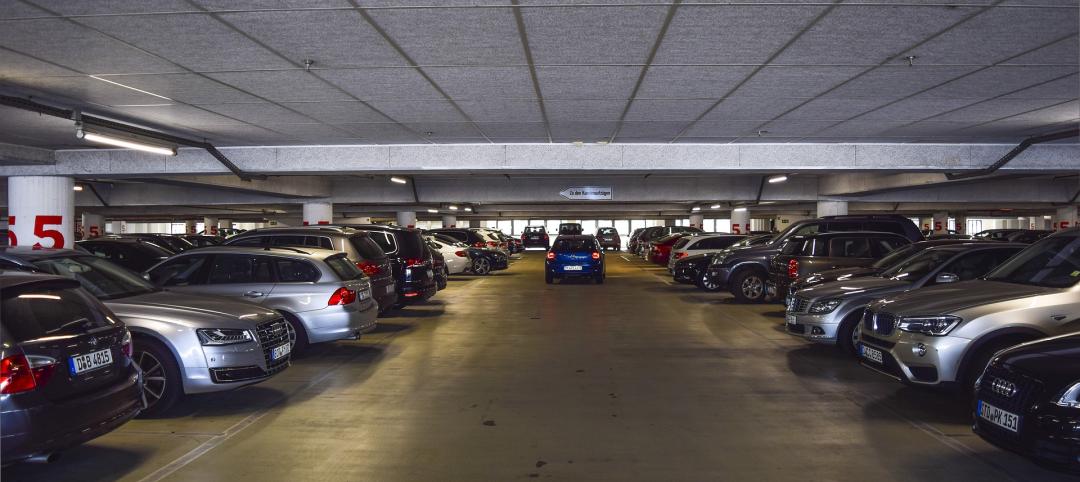Several real estate organizations, including the National Multifamily Housing Council (NMHC), have joined forces to urge Congress to fully fund the 2020 Census and the annual American Community Survey (ACS) in its 2016 budget, which lawmakers are currently debating.
Developers, builders, and contractors rely on these government data to gauge, among other things, changes in population demography and mobility, factors that play major roles in planning and construction plans.
Last year, the industry dodged a bullet when Congress failed to approve a measure that would have made participation in ACS voluntary. “This would have reduced the survey’s accuracy and made it more costly by requiring additional effort to ensure a representative sample,” NHMC states on its website. The Council notes, too, that the industry wants Congress to restore three-year data collection methods that got changed last year.
In its 2016 budget, the Obama Administration is requesting $1.5 billion for the Census Bureau in fiscal year 2016, including $663 million for the 2020 Census (a 91% increase over the previous Census budget) and $257 million (plus $15 million) for the ACS, according to the Census Project, a collaboration of state and local governments, advocacy and business groups, and research organizations interested in a fair and accurate census. Obama is asking Congress for an extra $1 billion for hiring and promotion for the decennial count, after plans to automate door-to-door interviewing in the 2010 Census failed to muster Congressional support.
Population data are of critical importance to municipalities, too. The Arizona Republic reported last month that the city of Chandler, Ariz., will pay the Census Bureau more than $4 million to conduct an updated population count for that metro later this year. Chandler is hoping that the new count will show how its population has increased significantly since the 2010 Census, which put Chandler’s population at 236,326 residents. (Arizona allocates state-shared revenue based on a city’s population.)
The Census Project notes that the Bureau is trying to save as much as $5 billion over the census lifecycle by investing early in research, testing, and development of new methods and technologies. For example, later this year the Bureau plans to hold focus groups with people who would be affected by a new classification being considered for Americans of Middle Eastern and North African descent. The 2013 ACS—with a sample size of 3 million addresses nationwide—estimated that there were about 1.5 million Arab Americans in the U.S. in 2006-10. If this test proves successful, the new classification could be included in the 2020 Census, according to the Associated Press.
Related Stories
Data Centers | Oct 25, 2022
Virginia county moves to restrict the growth of new server farms
Loudoun County, Va., home to the largest data center cluster in the world known as Data Center Alley, recently took steps to prohibit the growth of new server farms in certain parts of the county.
Transportation & Parking Facilities | Oct 20, 2022
How to comply with NYC Local Law 126 parking garage inspection rules
Effective January 1, 2022, New York City requires garage owners to retain a specially designated professional engineer to conduct an assessment and file a report at least once every six years. Hoffmann Architects + Engineers offers tips and best practices on how to comply with NYC Local Law 126 parking garage inspection rules.
Mixed-Use | Oct 20, 2022
ROI on resilient multifamily construction can be as high as 72%
A new study that measured the economic value of using FORTIFIED Multifamily, a voluntary beyond-code construction and re-roofing method developed by the Insurance Institute for Business & Home Safety (IBHS), found the return can be as high as 72%.
Building Team | Oct 18, 2022
Brasfield & Gorrie chairman’s home vandalized by anti-development activists
Activists vandalized the home and vehicles of Miller Gorrie, chairman of Birmingham-based Brasfield & Gorrie, in protest of a planned $90 million, 85-acre police, fire and public safety training center in Atlanta.
Codes and Standards | Oct 17, 2022
Ambitious state EV adoption goals put pressure on multifamily owners to provide chargers
California’s recently announced ban on the sale of new gas-powered vehicles starting in 2035—and New York’s recent decision to follow suit—are putting pressure on multifamily property owners to install charging stations for tenants.
| Oct 13, 2022
Boston’s proposed net-zero emissions code has developers concerned
Developers have raised serious concerns over a proposed new energy code by the City of Boston that would require newly constructed buildings over 20,000 sf to immediately hit net-zero emissions goals.
Building Team | Oct 12, 2022
Real estate development practices worsened impact of Hurricane Ian
A century ago, the southwest Florida coast was mostly swamps and shoals, prone to frequent flooding and almost impossible to navigate by boat.
Standards | Oct 11, 2022
Peter Templeton named new USGBC and GBCI president and CEO
The U.S. Green Building Council (USGBC) and Green Business Certification Inc. (GBCI) appointed Peter Templeton as president and CEO.
Legislation | Oct 10, 2022
Chicago’s updated building energy code provides incentives for smart HVAC, water appliances
The Chicago City Council recently passed the 2022 Chicago Energy Transformation Code that is intended to align with the city’s goal of reducing carbon emissions by 62% from 2017 levels by 2040.
Contractors | Oct 6, 2022
Modular construction gets boost from impacts of the pandemic
The impact of the Covid pandemic on the construction industry appears to be fueling demand for modular construction methods, especially in the western U.S. and Canada.

















